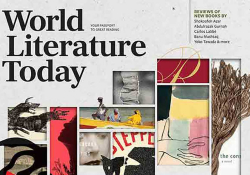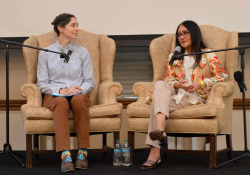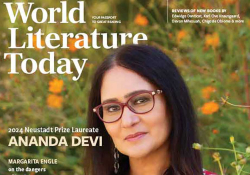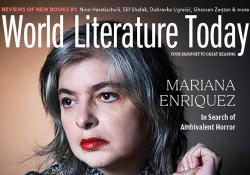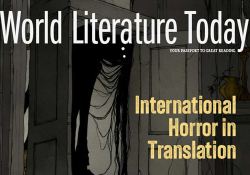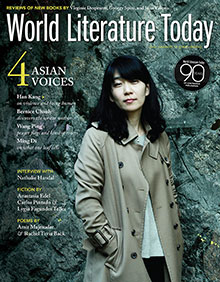Editor’s Note
To have access to literature, world literature, was to escape the prison of national vanity, of philistinism, of compulsory provincialism, of inane schooling, of imperfect destinies and bad luck. Literature was the passport to enter a larger life; that is, the zone of freedom. – Susan Sontag, “Literature Is Freedom” (2003)
 In a 2000 article surveying Malaysian fiction in English, Wong Ming Yook writes that “much of Malaysian literature has dealt with the problem of psychic displacement of migrant communities settling in a new land. . . . The complexity involved is intensified by the fact that English is an acquired second language, rather than the first language, of the writers themselves.” Although the “migrant consciousness” of such writers often leads to a sense of dispossession and fragmenting identity, Wong sees “movement toward a healing resolution” in many of these authors’ fictions. Writers who “grapple hard with the willingness to lose cultural boundedness,” she writes, ultimately strive for an “assimilating and encompassing consciousness” that compensates for other losses (“Traversing Boundaries,” WLT, Spring 2000). For the writers showcased in this issue’s “Four Asian Voices” cover feature—Han Kang (South Korea), Wang Ping (China/US), Ming Di (China/US), and Bernice Chauly (Malaysia)—a “migrant consciousness” is embedded in their work, even when not precipitated by physical displacement.
In a 2000 article surveying Malaysian fiction in English, Wong Ming Yook writes that “much of Malaysian literature has dealt with the problem of psychic displacement of migrant communities settling in a new land. . . . The complexity involved is intensified by the fact that English is an acquired second language, rather than the first language, of the writers themselves.” Although the “migrant consciousness” of such writers often leads to a sense of dispossession and fragmenting identity, Wong sees “movement toward a healing resolution” in many of these authors’ fictions. Writers who “grapple hard with the willingness to lose cultural boundedness,” she writes, ultimately strive for an “assimilating and encompassing consciousness” that compensates for other losses (“Traversing Boundaries,” WLT, Spring 2000). For the writers showcased in this issue’s “Four Asian Voices” cover feature—Han Kang (South Korea), Wang Ping (China/US), Ming Di (China/US), and Bernice Chauly (Malaysia)—a “migrant consciousness” is embedded in their work, even when not precipitated by physical displacement.
For Han Kang, having grown up surrounded by an abundance of books as a child, writing begins with “burning questions,” subjects that disturb her, an interrogation of place, a desire “to explore human purity and strength more deeply” (page 62). Despite the “normalization” of violence at the heart of language and existence, Han writes to give “the feeling that . . . little things might be what make up humankind, a potential for something meaningful.”
In the work of Wang Ping—poet, translator, photographer—words rise like prayer flags in the wind (page 74). While currently living in Minnesota, on the bank of the Mississippi, Wang was born in Shanghai in the Yangzi River delta, yet claims that her “spiritual home” is in Tibet, the river’s source. In her compelling interview, she speaks of creating a project with a group of artists in Tibet, piecing fabric together to make a banner, and taking it up to Mila Mountain to attach it to millions of other prayer flags: “I knew the flags were there, but I did not know the magnitude. I was stumbling and gasping, trying to tie it. When I finally did it, I stepped back. The banner was small and insignificant, but when it joined the prayer flags, suddenly it became a great force.” That gesture led to a meeting with the Dalai Lama, about whom she speaks movingly in her conversation with Amy Lantrip.
In Ming Di’s pictographic poems, a single leaf sends up “questions to heaven,” which “bang the white poplar” (page 78). Against the thousand “fractured” answers in reply, that one leaf embodies the truth of an entire tree, “lays bare great secrets / of the fall.” In the accompanying pictographs composed from Chinese characters, a playful correspondence between poem and image ensues.
For Bernice Chauly—whose piece is the latest in the Puterbaugh Essay series—the incipit for writing arises from her father’s death, but the actual compulsion to write comes one cold winter night in Winnipeg, Canada (page 80). In writing herself into Malaysia’s narrative, Chauly navigates “bloodlines, curses, histories”; “I had to be named,” she writes. Recalling being seduced, as a reader, by the power of words that linger on her tongue and skin, Chauly’s personal canon of Western authors eventually intersects with the work of two Malaysian women writers, Shirley Geok-lin Lim and Hilary Tham. In the end, she is able to “excoriate” her grief, a word that in its etymology means to abrade from or strip off the skin.
Susan Sontag’s equation of (world) literature with freedom in the epigraph above resonates with each of the writers featured in the current issue of WLT. Against the imprisonments of time and place, literature grants writers—and readers—an emancipated consciousness.
Daniel Simon
